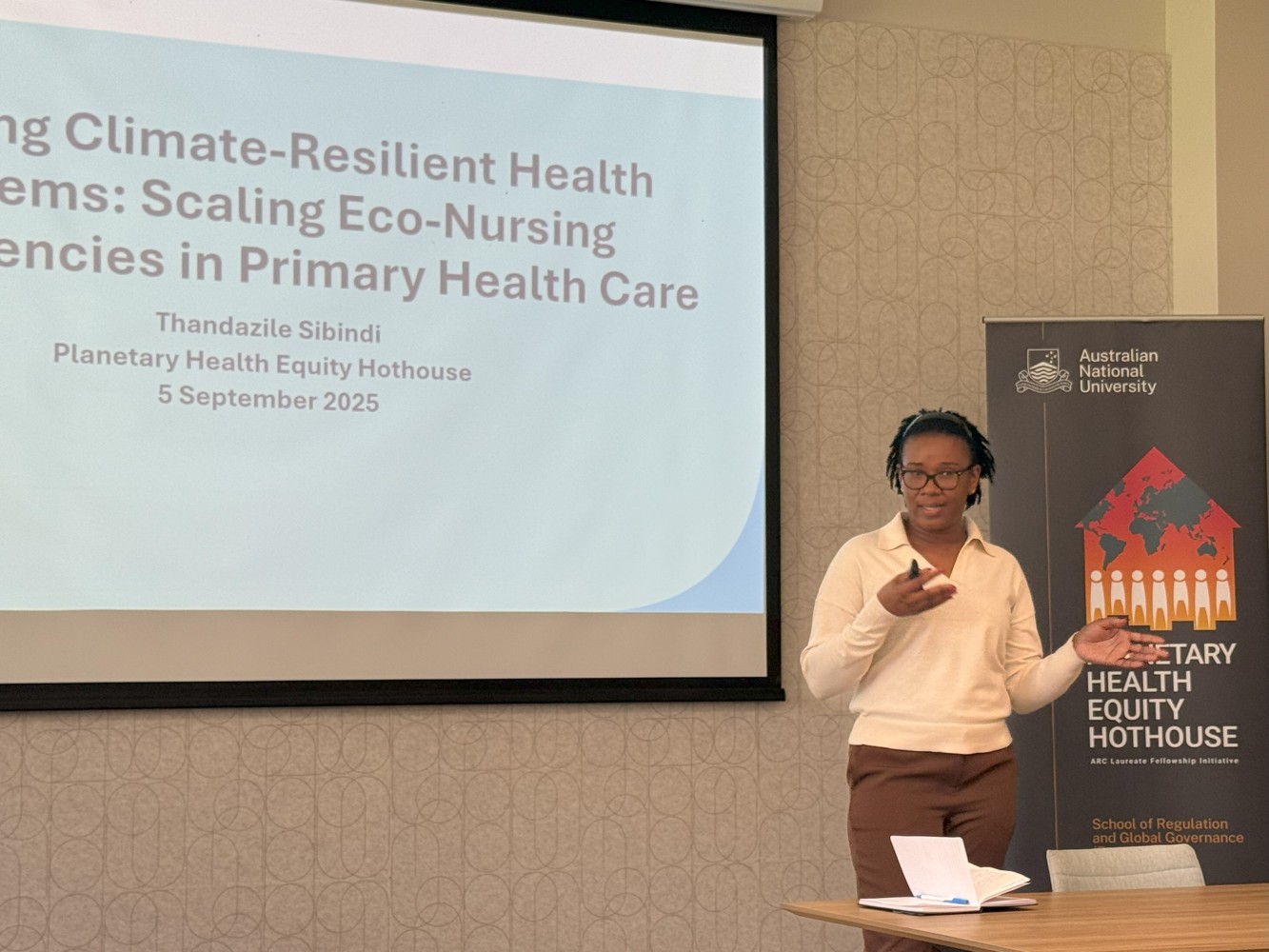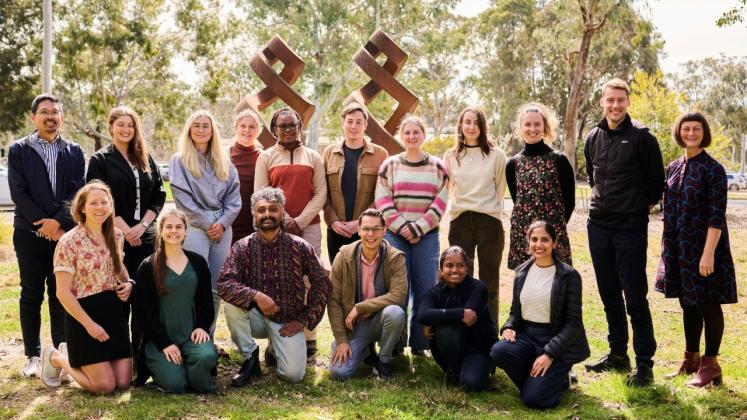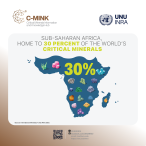A Global Gathering for Planetary Health Equity
From 1–12 September 2025, I had the privilege of participating in the Planetary Health Equity Future Leaders Programme in Canberra, Australia. This unique initiative brought together young researchers and professionals from around the world who share a commitment to advancing planetary health and climate justice ensuring that health, equity, and sustainability are at the heart of global action.
The programme was designed to equip participants with the knowledge, skills, and networks needed to address complex challenges at the intersection of health and climate change. The thematic focus of the 2025 program was “Governing for planetary health equity: addressing the consumptogenic system”. The consumptogenic system is characterised by institutions, policies, business practices, and social norms that embed and entrench principles of extractive capitalism and colonialism. Its defining feature was the emphasis on equity and governance, recognising that the consequences of environmental degradation and global warming are not evenly distributed, and that its determinants and responses are shaped by political, commercial and other powers. Vulnerable populations often experience the greatest health burdens despite contributing the least to these crises.
Learning Across Disciplines
The two-week program combined lectures, group activities, and a world-café model led by experts in indigenous knowledge advocates, climate communication, sustainable health systems, economics, and public policy and advocacy. These sessions not only shared cutting-edge insights but also encouraged us to reflect on how these ideas apply in our own contexts. Coming from a background of nursing and health research, I found it particularly meaningful to see how social and commercial determinants of health and climate justice are deeply embedded in the planetary health agenda.
The diverse cohort added enormous value. Participants came from fields as varied as public health, ecological economics, nutrition, public policy, corporate accountability, regenerative agriculture, and medicine. This diversity emphasised a critical truth: advancing planetary health equity requires interdisciplinary collaboration and inclusive leadership. No single sector can solve the challenges of climate change and health in isolation.
Presenting the UNU-IIGH Strategy
One of the highlights of my participation was presenting the UNU-IIGH strategy for creating a climate-smart health workforce. Our approach emphasises integrating climate change awareness, sustainable practices, and resilience-building into health systems as envisaged by the WHO Operational Framework for Building Climate Resilient Health Systems.
Sharing this work in Canberra offered an invaluable opportunity to engage with peers and global experts. The discussion reinforced the urgency of equipping nurses and other frontline health professionals with competencies to respond effectively to the health impacts and injustices of climate change. Feedback from colleagues also provided fresh perspectives on how this strategy can be adapted and scaled at both local and global levels.

Building Skills for Climate-Resilient Leadership
Beyond knowledge, the program emphasised skill-building. Through group discussions, we developed strategies for an imaginary world with planetary health equity. These exercises demanded systems and scenario thinking, empathy, and negotiation skills that are vital for future leaders seeking to address the root causes of health inequities in a warming world.
A Call to Action
As a policy research associate in climate justice I left the program with a stronger vision of my role in shaping sustainable and equitable health systems. I am committed to bridging evidence and policy, amplifying the voices of communities most affected by climate change, holding powerful actors to account, and ensuring sustainability and transformation are embedded into everyday health practice.
Most importantly, the Planetary Health Equity Future Leaders Program left me with hope. The energy, creativity, and commitment of my peers from across the globe reaffirmed that meaningful change is possible. This was not just a professional development opportunity, it was a call to action. Together, we are building the foundations of a more just, sustainable, and healthy future.
Written by Thandazile Sibindi
Thandazile Sibindi is a Policy Research Associate at the United Nations University International Institute for Global Health (UNU-IIGH), where she contributes to the Climate Justice and Health work package. Her work focuses on shaping just and inclusive climate policies, especially for populations in low-resource and climate-vulnerable settings.
Suggested citation: " Reflections on the Planetary Health Equity Future Leaders Programme ," United Nations University, UNU-IIGH, 2025-10-13, https://unu.edu/iigh/article/reflections-planetary-health-equity-future-leaders-programme.





